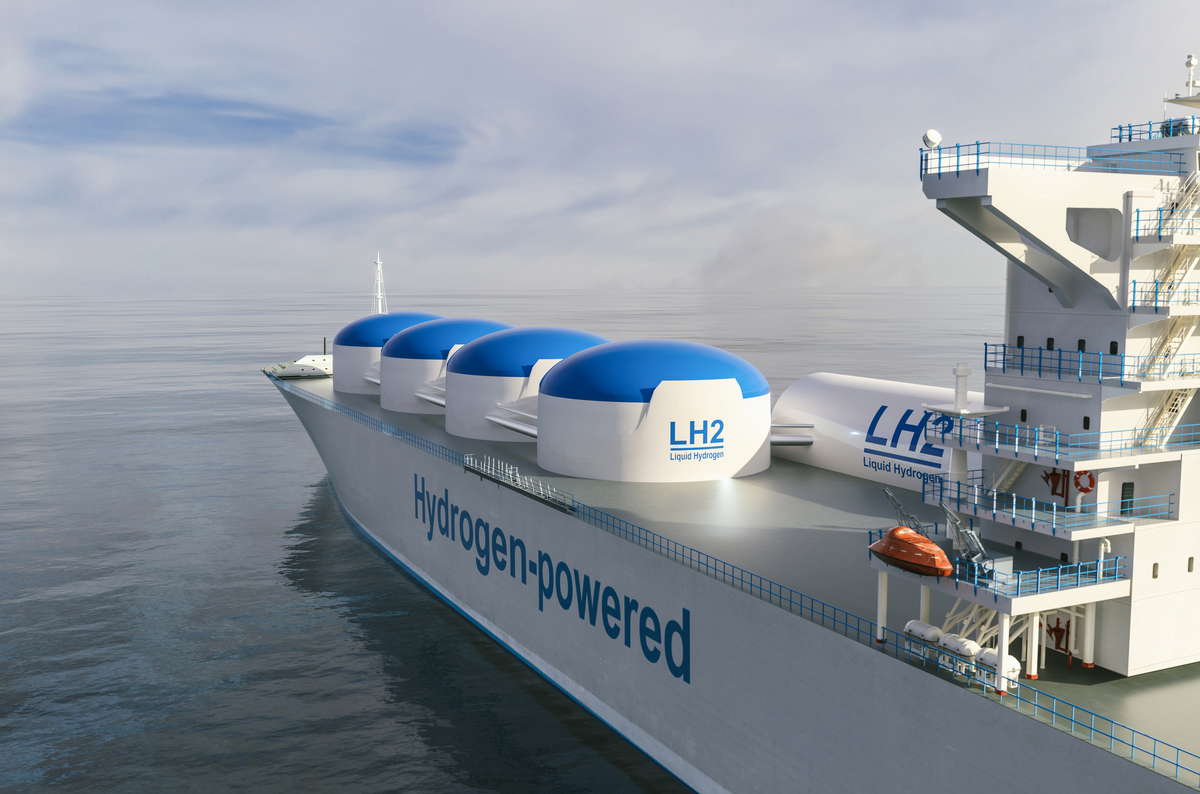Alternative fuels see significant takers this year - DNV
Even though vessels powered by alternative fuels make up less than 1% of the current global fleet, their orders account for nearly a quarter of all newbuild orders placed this year, classification society DNV data suggest.
 PHOTO: Model of a liquid hydrogen carrier. Getty Images
PHOTO: Model of a liquid hydrogen carrier. Getty Images
Several shipowners are evaluating different alternative fuel options and technologies as they pursue their decarbonization goals. Currently, there are 394 alternative fuel-powered vessels in operation, up by 113 vessels from last year, DNV data shown.
Out of 394 vessels in operation, 338 are LNG powered. Followed by LPG with 28 vessels, methanol with 22, and the remaining six powered by hydrogen
LNG has gained popularity among shipowners partly due to its mature technology and potential to meet near-term emission norms. The number of LNG-fuelled vessels in operation has jumped from 246 in the last year, to 338 now.
Crude oil tankers have largely opted for LNG with 46 of them running on LNG. Followed by 42 each from passenger/car ferries, container ships and chemical tanker segments.
It is widely anticipated that LNG uptake would rise over the coming years. DNV projects the LNG fleet to rise to 857 by 2028.
LPG emerges as the second preferred choice, especially among LPG carriers. Almost all of the 28 LPG-powered vessels in operation are LPG carriers. The LPG-powered fleet is expected to rise to 121 by 2025.
Methanol has long been tipped as a key alternative to conventional fuels and has emerged as the third most preferred alternative type. There are 22 methanol-powered vessels currently in operation- up by seven from the last year.
Methanol seems to be a popular choice among chemical tanker owners, with chemical tankers dwarfing the other vessel types with 20 vessels.
The number of methanol-powered vessels in operation and on order will almost triple by 2028 from the current levels to 82.
Though adoption of hydrogen as bunkering fuel is in its nascent stage, it has been touted to be one of the most promising alternative fuels. The number of hydrogen-fuelled vessels in operation has increased by four to reach six this year.
Hydrogen-fuelled vessels in operation and on order will rise significantly to 25 vessels by 2028.
While the shipping industry is gearing toward its emission reduction goals, alternative fuels have yet to overcome many obstacles, such as logistical and regulation challenges.
By Tuhin Roy
Please get in touch with comments or additional info to news@engine.online






